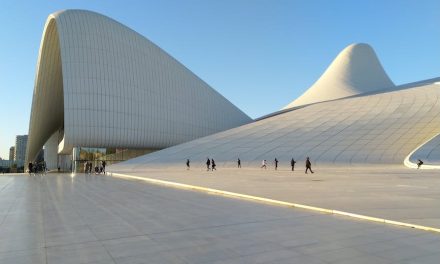Table of Contents
“Arab Leaders in the Music Industry: Composing Harmony and Progress”
Introduction
The Arab music industry has witnessed a significant growth and transformation in recent years, thanks to the contributions of talented and visionary Arab leaders. These individuals have played a crucial role in composing harmony and progress within the industry, fostering cultural exchange, and promoting Arab music on a global scale. Through their innovative approaches, dedication, and commitment, Arab leaders in the music industry have not only elevated the status of Arab music but also paved the way for aspiring artists to thrive and make their mark in the international music scene.
The Rise of Arab Leaders in the Music Industry

The music industry has always been a platform for cultural expression and creativity. In recent years, there has been a noticeable rise in Arab leaders making their mark in this global industry. These individuals have not only brought their unique talents and perspectives to the forefront but have also played a significant role in shaping the future of music.
One of the key factors contributing to the rise of Arab leaders in the music industry is the increasing recognition and appreciation of Arab culture worldwide. Arab artists have been able to leverage their heritage and create music that resonates with audiences from different backgrounds. This has led to a growing demand for Arab music and a greater platform for Arab artists to showcase their talent.
Furthermore, advancements in technology and the rise of social media have played a crucial role in promoting Arab music and artists. Platforms like YouTube and Spotify have made it easier for Arab musicians to reach a global audience, breaking down geographical barriers and allowing their music to be heard by millions. This has provided Arab leaders in the music industry with unprecedented opportunities for exposure and success.
Another significant factor contributing to the rise of Arab leaders in the music industry is the increasing collaboration between Arab and Western artists. This cross-cultural exchange has not only resulted in the creation of unique and innovative music but has also helped Arab artists gain recognition on an international level. Collaborations with renowned Western artists have allowed Arab musicians to tap into new markets and expand their fan base.
Moreover, Arab leaders in the music industry have been instrumental in challenging stereotypes and breaking down cultural barriers. Through their music, they have been able to showcase the diversity and richness of Arab culture, challenging preconceived notions and promoting a more inclusive and tolerant society. This has not only had a positive impact on the perception of Arab artists but has also contributed to a greater understanding and appreciation of Arab culture as a whole.
In addition to their artistic contributions, Arab leaders in the music industry have also played a significant role in philanthropy and social activism. Many Arab musicians have used their platform to raise awareness about important social issues and support charitable causes. This has not only helped bring attention to these issues but has also inspired others to get involved and make a difference.
Overall, the rise of Arab leaders in the music industry is a testament to the talent, creativity, and resilience of Arab artists. Through their music, they have been able to transcend cultural boundaries, challenge stereotypes, and promote a more inclusive and diverse society. With the continued support and recognition of their work, Arab leaders in the music industry have the potential to shape the future of music and inspire generations to come.
Breaking Barriers: Arab Musicians Making Global Impact
Arab musicians have been making a significant impact on the global music industry, breaking barriers and composing harmony and progress. These talented individuals have not only showcased their musical prowess but have also challenged stereotypes and misconceptions about Arab culture. Through their artistry, they have bridged cultural divides and fostered understanding and appreciation for Arab music and traditions.
One such influential figure is Lebanese singer Fairuz, often referred to as the “Jewel of Lebanon.” With her enchanting voice and soulful performances, Fairuz has captivated audiences worldwide. Her music transcends language barriers, touching the hearts of listeners from different cultures and backgrounds. Fairuz’s ability to convey emotions through her music has made her an icon in the Arab world and beyond.
Another Arab musician who has made a global impact is Egyptian composer and pianist Fathy Salama. Salama is known for his fusion of traditional Arabic music with contemporary jazz and world music elements. His innovative approach has earned him international recognition and numerous awards. Salama’s compositions not only showcase his exceptional talent but also serve as a testament to the rich musical heritage of the Arab world.
In recent years, Arab musicians have also gained prominence in the hip-hop and rap genres. Palestinian rapper DAM, for instance, has used his music as a platform to address social and political issues. Through his thought-provoking lyrics, DAM sheds light on the struggles faced by Palestinians and challenges the status quo. His music has resonated with audiences worldwide, sparking conversations and raising awareness about the Palestinian cause.
Similarly, Moroccan rapper Muslim has made waves in the music industry with his unique blend of traditional Moroccan sounds and contemporary rap. Muslim’s music reflects his experiences growing up in the streets of Casablanca, tackling themes of poverty, social inequality, and the challenges faced by the youth. His raw and authentic style has garnered him a dedicated fan base and has helped put Moroccan rap on the global map.
Arab musicians have also made significant contributions to the world of classical music. Lebanese composer and conductor, Hisham Gabr, has been instrumental in promoting Arab classical music on the international stage. Gabr’s compositions draw inspiration from Arab folklore and traditional melodies, infusing them with a modern twist. His work has been performed by renowned orchestras around the world, showcasing the beauty and complexity of Arab classical music.
The success of these Arab musicians is a testament to their talent, dedication, and perseverance. They have shattered stereotypes and proven that Arab music is not limited to traditional genres but can encompass a wide range of styles and influences. Through their music, they have fostered cultural exchange and understanding, promoting unity and harmony in a world often divided by differences.
As Arab musicians continue to make their mark on the global music industry, it is crucial to recognize and celebrate their contributions. Their artistry serves as a bridge between cultures, fostering dialogue and appreciation for the rich musical heritage of the Arab world. By breaking barriers and composing harmony and progress, these talented individuals are paving the way for a more inclusive and diverse music industry.
Cultural Fusion: Arab Music Influencing the Global Scene
Arab music has a rich and diverse history that spans centuries, and its influence can be felt across the globe. From traditional folk songs to modern pop hits, Arab music has captivated audiences with its unique melodies and rhythms. In recent years, Arab artists and producers have been making waves in the global music industry, composing harmony and progress.
One of the key factors contributing to the rise of Arab music on the global scene is the fusion of traditional Arab sounds with contemporary Western influences. Arab artists have embraced elements of Western pop, hip-hop, and electronic music, blending them seamlessly with their own cultural heritage. This fusion has created a fresh and exciting sound that appeals to a wide range of listeners.
One example of this fusion is the rise of Arab pop music, also known as “Arabian pop.” This genre combines traditional Arab instruments, such as the oud and qanun, with modern production techniques and catchy melodies. Arab pop artists like Nancy Ajram and Amr Diab have gained international fame, with their music reaching audiences far beyond the Arab world. Their success has paved the way for other Arab artists to follow in their footsteps and make their mark on the global music scene.
Another aspect of Arab music that has gained recognition worldwide is the use of traditional Arab scales and modes. These scales, such as maqam and hijaz, have a distinct sound that sets Arab music apart from other genres. Arab artists have incorporated these scales into their compositions, giving their music a unique and authentic flavor. This has not only attracted listeners who appreciate the cultural richness of Arab music but also musicians and producers who are eager to experiment with new sounds.
In addition to the fusion of musical styles, Arab artists have also been using their music as a platform to address social and political issues. Through their lyrics and performances, they shed light on topics such as love, identity, and the struggles faced by their communities. This has resonated with audiences around the world, as it provides a glimpse into the realities of Arab life and challenges common stereotypes.
Furthermore, the rise of streaming platforms and social media has played a significant role in promoting Arab music globally. Artists can now easily share their music with a global audience, bypassing traditional gatekeepers and reaching listeners directly. This has allowed Arab artists to gain exposure and build a fan base outside of their home countries. It has also facilitated collaborations between Arab and international artists, further enriching the global music scene.
The success of Arab music on the global stage is a testament to the talent and creativity of Arab artists. They have managed to bridge cultural divides and create a universal language through their music. Arab music has become a powerful tool for cultural exchange and understanding, fostering connections between people from different backgrounds.
In conclusion, Arab music is making its mark on the global music scene, thanks to the fusion of traditional Arab sounds with contemporary influences, the use of traditional scales and modes, and the exploration of social and political themes. Arab artists have embraced these elements, composing harmony and progress in the music industry. As their influence continues to grow, Arab music will undoubtedly play an even more significant role in shaping the global cultural landscape.
Empowering Voices: Arab Women Leaders in the Music Industry
Arab Leaders in the Music Industry: Composing Harmony and Progress
The music industry has long been dominated by male voices, but in recent years, Arab women have been making their mark as leaders in this field. These women are not only breaking barriers but also empowering others to follow in their footsteps. Through their talent, determination, and resilience, they are composing harmony and progress in the Arab music industry.
One such trailblazer is Yasmine Hamdan, a Lebanese singer-songwriter who has gained international recognition for her unique blend of traditional Arabic music with contemporary sounds. Hamdan’s success has not only opened doors for other Arab women but has also challenged stereotypes and preconceived notions about Arab women in the music industry. Her music speaks to the experiences and struggles of Arab women, giving them a voice and a platform to be heard.
Another influential figure in the Arab music industry is Oumou Sangaré, a Malian singer and songwriter. Sangaré’s powerful voice and socially conscious lyrics have made her a symbol of empowerment for women across the Arab world. Through her music, she addresses issues such as gender inequality, child marriage, and female genital mutilation, shedding light on these important topics and advocating for change. Sangaré’s activism and dedication to social justice have inspired a new generation of Arab women to use their voices for positive change.
In addition to individual artists, there are also organizations that are working tirelessly to empower Arab women in the music industry. One such organization is the Arab Women in Music Association (AWMA), which aims to support and promote Arab women musicians and composers. AWMA provides resources, networking opportunities, and mentorship programs to help women navigate the challenges of the music industry and achieve their full potential. By creating a supportive community, AWMA is fostering a sense of unity and collaboration among Arab women in music.
The rise of Arab women leaders in the music industry is not without its challenges. Arab societies are often conservative, and women face societal pressures and expectations that can hinder their progress. However, these women are defying these norms and pushing boundaries, proving that talent knows no gender. They are using their music as a tool for social change, challenging stereotypes, and advocating for gender equality.
The success of Arab women in the music industry is not only a testament to their talent and hard work but also to the changing attitudes towards women in the Arab world. As more women break through barriers and achieve success, society’s perception of women’s roles in the music industry is slowly shifting. Arab women are no longer confined to traditional roles but are taking center stage, composing their own narratives, and shaping the future of the industry.
In conclusion, Arab women leaders in the music industry are making significant strides in empowering themselves and others. Through their talent, activism, and dedication, they are challenging stereotypes, advocating for social change, and creating a more inclusive and diverse music industry. Their success is not only a reflection of their individual achievements but also a sign of progress in the Arab world. As more women continue to rise to leadership positions in the music industry, the harmonious sound of progress will only grow louder.
Q&A
1. What is the significance of Arab leaders in the music industry?
Arab leaders in the music industry play a crucial role in promoting cultural diversity, fostering unity, and showcasing the talent and creativity of Arab musicians.
2. How do Arab leaders contribute to the progress of the music industry?
Arab leaders contribute to the progress of the music industry by providing platforms, resources, and support for Arab musicians, facilitating collaborations, and promoting the growth and recognition of Arab music globally.
3. What challenges do Arab leaders face in the music industry?
Arab leaders in the music industry face challenges such as limited infrastructure, censorship, cultural stereotypes, and lack of funding. They also navigate the complexities of balancing traditional and contemporary music styles.
4. What impact do Arab leaders have on society through their involvement in the music industry?
Arab leaders in the music industry have a significant impact on society by promoting cultural understanding, challenging stereotypes, empowering Arab artists, and fostering a sense of pride and identity among Arab communities.
Conclusion
In conclusion, Arab leaders in the music industry have played a significant role in composing harmony and progress. Through their talent, creativity, and dedication, they have not only enriched the Arab music scene but also contributed to the global music landscape. These leaders have broken barriers, challenged stereotypes, and promoted cultural diversity, fostering a sense of unity and understanding among different communities. Their contributions have not only entertained audiences but also served as a platform for social and political commentary, empowering individuals and advocating for change. Overall, Arab leaders in the music industry have made remarkable strides in promoting harmony and progress, leaving a lasting impact on both the Arab world and beyond.




